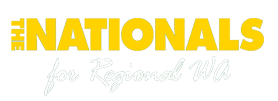Western Australia’s racing industry remains firmly in the dark over whether it will be any better off after the McGowan Government introduces a point of consumption wagering tax.
The Nationals WA racing spokesperson Colin Holt said Racing Minister Paul Papalia had “passed the buck” on the new tax, due to be introduced on 1 January 2019, during a Budget Estimates hearing this week.
The Government’s current modelling shows the tax would raise about $55 million in its first full year of operation.
“Yet when asked whether any of that money will be returned to the industry he purports to represent, the Racing Minister could not answer. He instead passed the buck, saying the revenue collected was a matter for the Treasurer,” Mr Holt said.
Treasurer Ben Wyatt, responding to further questions by The Nationals in a later Estimates hearing, did not rule out keeping all revenue from the new tax.
“It is bitterly disappointing that the Minister whose job it is to fight for the best interests of the State’s racing industry – which employs tens of thousands of West Australians and generates millions of dollars of economic activity – has thrown his hands in the air.
“Perhaps it’s time for the Premier to take the portfolio off Mr Papalia, who seems more preoccupied with Quokka selfies than the health and wellbeing of WA’s racing industry.”
Mr Holt said The Nationals had repeatedly called for the proceeds of the new wagering tax to be returned to the industry.
“That money belongs to the racing industry,” Mr Holt said.
“Otherwise, the Minister must come clean and call out the new point of consumption tax for what it is – a big fat cash grab.
“The racing industry has a right to know if the McGowan Government is going to use this $55 million per annum to fund its election commitments, instead of returning it to the clubs, breeders and trainers or enticing more industry involvement by increasing prize money.”
Mr Holt said he was concerned that Racing and Wagering WA continued to spend large sums of industry money on improving its gambling product offering while clubs, particularly in regional WA, were groaning under the weight of infrastructure backlogs and tired facilities.
“RWWA will spend almost $5 million in just two years so it can better compete with interstate and international betting agencies,” Mr Holt said.
“This seems ludicrous when you consider the Treasurer himself has said his preference is to see the WA TAB sold to a private operator.
“Once that money is gone it’s gone, along with the chance to improve the lot of regional race clubs.”


